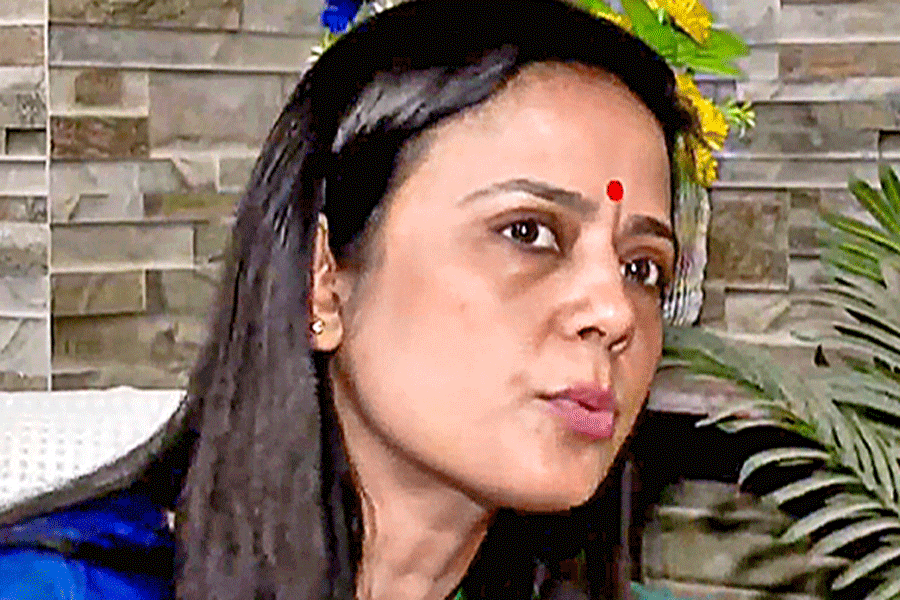On Thursday, the ethics committee of the Lok Sabha recommended the expulsion of Mahua Moitra on a complaint that she had asked questions in Parliament against the Adani group in lieu of cash and gifts from a businessman.
The ethics panel admitted it was not equipped to investigate the charge and unearth the money trail, if any, but recommended the expulsion anyway, holding Moitra guilty of “unethical conduct’’ and “contempt of the House”.
It asked the government to investigate the charge that Moitra had asked questions in return for cash.
The previous chapter: Money trail established in action against 11 MPs in 2005
Eleven members of Parliament were expelled on December 23, 2005, for accepting cash to ask questions in the two Houses. Ten of them were Lok Sabha members and one, a Rajya Sabha member.
Unlike in the case of Trinamul MP Mahua Moitra, who finds herself at the end of an expulsion recommendation by the Ethics Committee of the Lok Sabha, the money trail was clearly established in 2005.
A sting operation by web portal Cobrapost was behind the revelations and the whole thing was telecast on a private channel on the morning of December 12.
Of the 10 Lok Sabha MPs, five belonged to the BJP, three to the BSP, one to the Congress and one to the RJD. The accused Rajya Sabha member was Chhatrapal Singh Lodha of the BJP. The bribe figures varied; the lowest being Rs 15,000 offered to Lodha and the highest being Rs 1,10,000 offered to the RJD’s Manoj Kumar.
Across party lines, leaders of both Houses condemned the incident and called for “most stringent and fast action”. The “Money-forPoser XI”, as they were called, were asked not to attend Parliament until the matter was settled.
On December 23, there was a long debate on a five-member probe committee’s report recommending the expulsion. At the end of it, Pranab Mukherjee, who was then defence minister and leader of the Lok Sabha, said, “This is a sad occasion for me when I rise to move the motion. But as an ordinary citizen of the country, I feel the dignity of the House must be preserved not by the Supreme Court but by its members.” The Speaker of the Lok Sabha at the time was the late Somnath Chatterjee.
Both Houses adopted the motion after it was put to vote but not before some good drama.
The BJP, which was the main Opposition party, walked out of the lower House during voting.
L.K. Advani who was the leader of the Opposition said: “It was stupidity more than corruption… The punishment given to them is not commensurate with the offence. I therefore cannot associate with the adoption of the motion.” BJP leader V.K. Malhotra, however, seemed to suggest that his party’s stand had to do with procedure. He said: “We are not shielding corruption. But we want the MPs to be given the right to present their case and take help of lawyers if they want.” Other party members said the matter should have been referred to the privileges committee after the probe committee was done with it.
After the vote, parliamentary affairs minister Priya Ranjan Das Munshi made some confessions to The Telegraph.
Most curious among those was the fact that no whip had been issued to ruling alliance MPs and this was in accordance with the wishes of Manmohan Singh and Sonia Gandhi. There was some concern about the BSP, but minutes before the vote Mayawati sent a message to say her MPs would vote for the motion.
The reason for not issuing the whip was explained by Munshi. He said: “The issue involved the dignity and honour of the House and the will of the members should be spontaneously reflected and not under duress.”
In 1951, the then Prime Minister Jawaharlal Nehru received a complaint that Congress MP H.G. Mudgal had received monetary benefits in connection with his dealings with the Bullion Merchants Association of Bombay. Nehru ordered an inquiry by an ad hoc committee and it found the MP guilty. Next, he secured Lok Sabha Speaker G.V. Mavalankar’s consent, and moved the resolution to expel Mudgal.
Nehru said: “… If the House does not express its will in such matters in clear, unambiguous and forceful terms, then doubts may very well arise in public mind as to whether the House is very definite about such matters or not.” Mudgal, however, got wind of what was in the works for him and resigned before he could be expelled.











